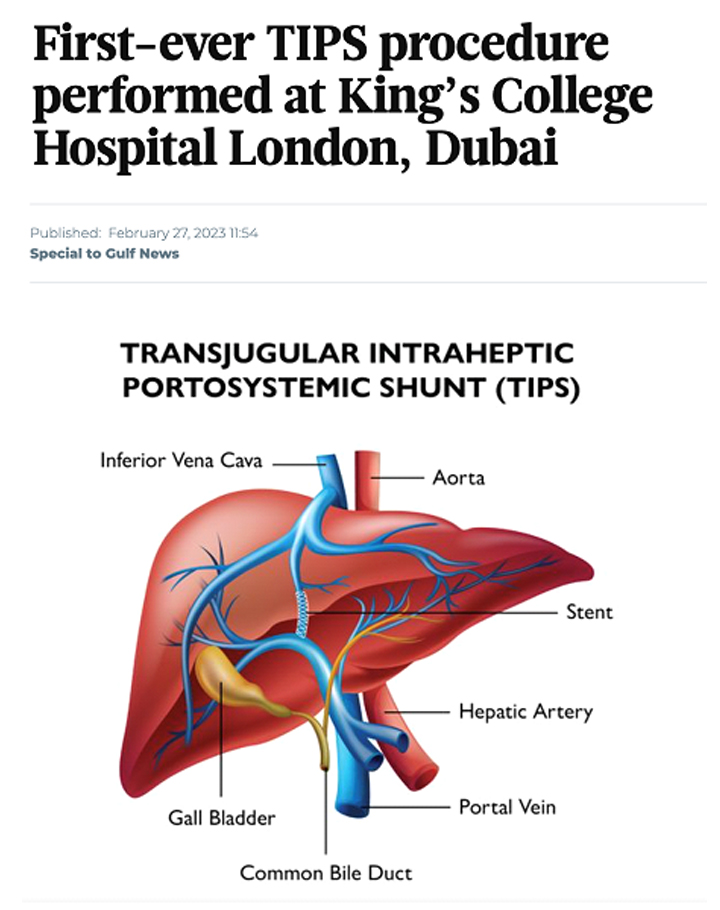First-ever TIPS procedure performed at King’s College Hospital London, Dubai

Liver cirrhosis is a life-threatening condition that eventually leads to liver failure and untimely death. The commonest cause of liver cirrhosis now-a-days is fatty liver disease that occurs in individuals who are obese or diabetic. Cirrhosis also occurs in those who consume excess alcohol or in those who are infected with hepatitis B or C virus. Early cirrhosis does not cause any symptoms and patients usually feel healthy. Typical symptoms of advanced cirrhosis include nausea, fatigue, loss of appetite, weight loss, yellowing of the eyes and skin (jaundice), itchy skin and dark urine. As liver function deteriorates, there is accumulation of excess fluid in the body that leads to swelling of the legs and the belly (ascites). Cirrhosis is also related to a condition known as portal hypertension in which there is increased resistance to blood flow through the liver. Portal hypertension leads to congestion of blood vessels in the food-pipe and stomach. These vessels, called varices can rupture and cause life threatening bleeding. While medical treatment is possible for early liver cirrhosis, liver transplantation is the only curative options for advanced liver cirrhosis.
While liver transplantation is a curative treatment for cirrhosis, it is a formidable procedure and has its own risks and complications. It requires a healthy family member of a compatible blood group and tissue match who can donate part of his/her liver to the patient. It requires specialized medical facilities and is an expensive procedure. Lifelong medications are needed to prevent rejection of the transplanted liver.
Trans-jugular Intrahepatic Portosystemic Shunt (TIPSS) is a special interventional radiological procedure that involves placement of a special wire mesh stent in the liver, which helps to reduce the resistance to blood flow through the liver and therefore reduces the portal hypertension and helps control bleeding from varices in the food-pipe and stomach. It can also be done in patients who have repeated accumulation of fluid (ascites) in the abdominal cavity as a result of liver cirrhosis. TIPPS is not an alternative to liver transplantation. It helps controls some of the complications of advanced cirrhosis and gives time to the patient to prepare for liver transplantation. It can sometimes avoid a liver transplant for two to three years.
